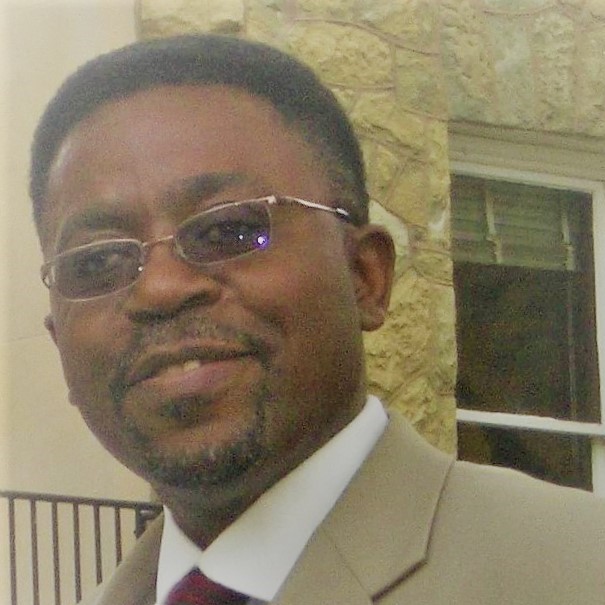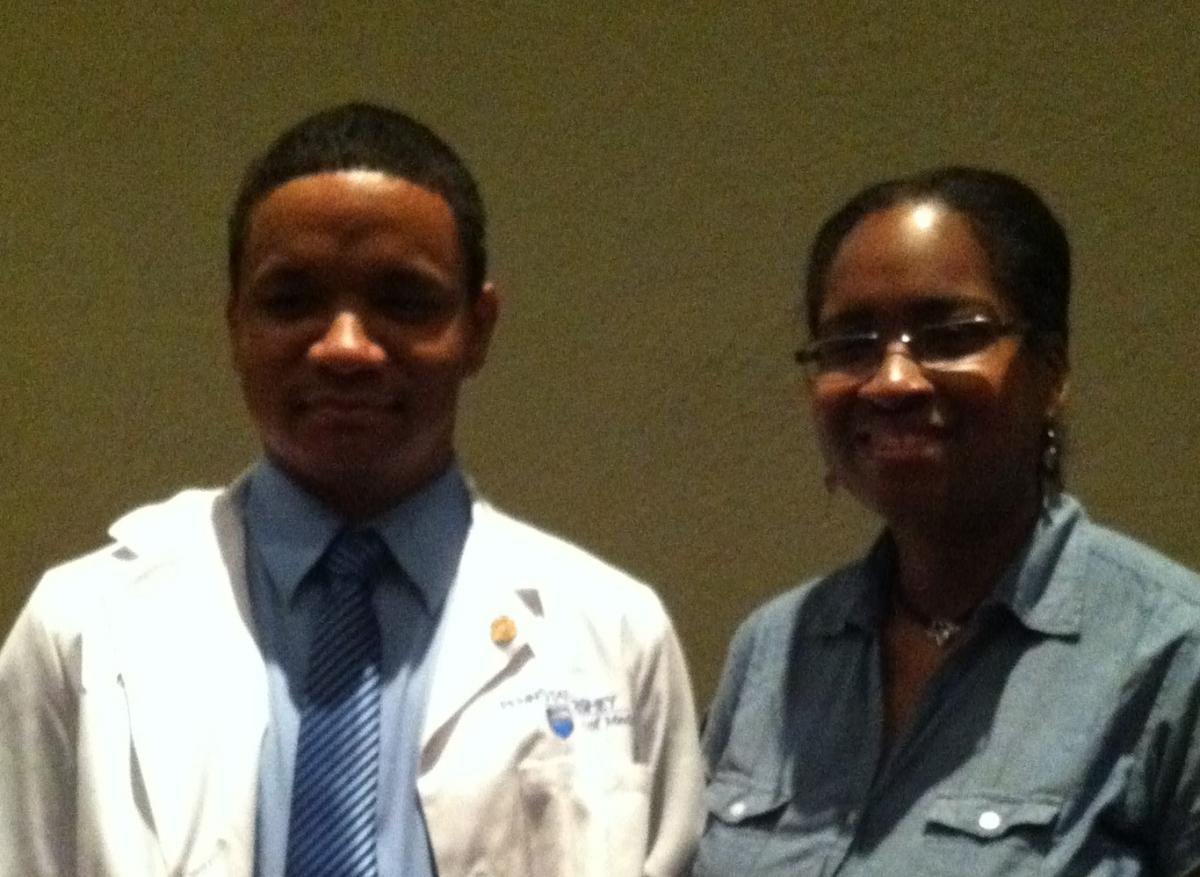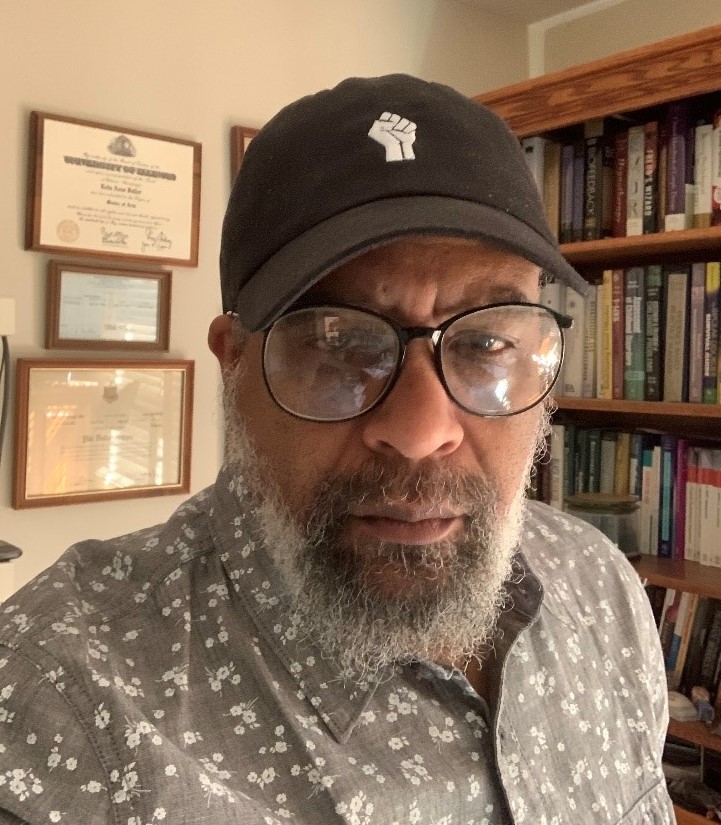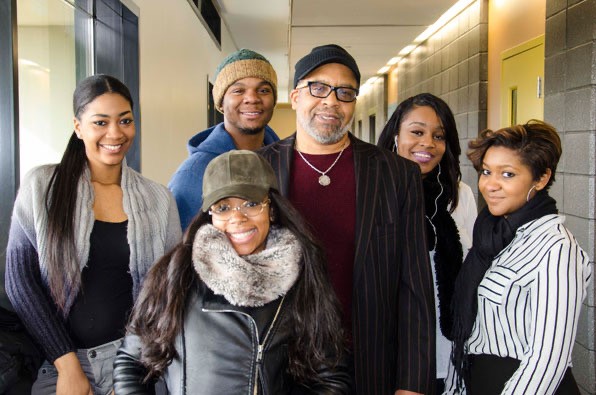Professor Anna Hull, Ph.D.
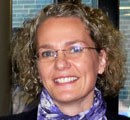 |
|
Anna Hull, Ph.D., Professor of Biology
|
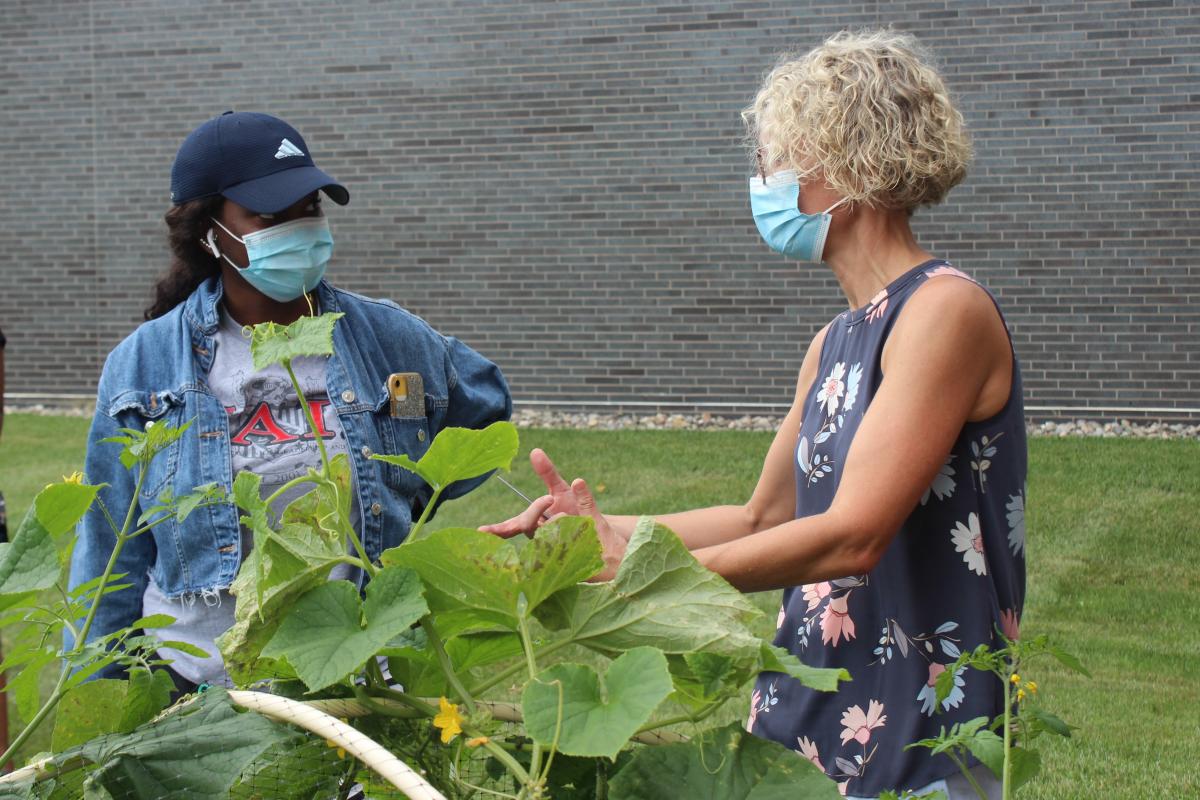 |
| Professor Anna Hull, Ph.D., Biology Department, working with biology student Shagasbie Georges to pick vegetables from the garden on September 3, 2020. |
Department of Biology
- Research project name: LU-FIELDS: Lincoln University – Food Intersectional Education
- Linked to Diversify Sustainability
- Funding: National Science Foundation, HBCU-UP, Targeting Infusion Program
- Term: July 2020-June 2023
- Names of LU faculty team members on the project: Melina McConatha, James Uzoma Chikwem
- Names LU students on the project: Jada Williams, James Hooker, Jaelyn Jackson, Onaje Cummingham
Q: Which of the above typologies in Ernest Boyer’s model of scholarship describe your research activities?
It honestly spans all the typologies as we are developing curriculum (teaching); developing and expanding new intersectional assessment models through research and discovery in the areas of farming/gardening, food justice, and food sovereignty (discovery); conducting interdisciplinary work by connecting the disciplines of human services, computer science and biology and critically examining the intersection among those disciplines as well as those among race, food, and sustainability engagement (integration); building farming/garden space and growing food for consumption at the University and addressing the social problems around access to healthy foods (food justice) that is culturally appropriate (food sovereignty) both at Lincoln and in the larger community (application).
Q: How has your involvement in research made your teaching more rigorous?
By actively engaging in research, I am keenly aware of emerging challenges that persistent problems such as climate change, racial, social, and economic justice exasperate. For example, the current wildfires in California have brought so much dust and soot to our area through the jet stream that the sky has appeared cloudy for the last week despite the lack of a true cloud cover. Darker skies have a huge impact on plants’ ability to photosynthesize and could drastically reduce harvest yields. While the darkened skies in the east this week might not hurt farmers directly this season, these types of problems might have an impact on food production in the long-term as wildfires increase due to climate change. Bringing this type of information into the classroom allows me to open up the conversation among my students to incorporate information from multiple sources, including students’ personal experiences, to discuss future challenges and to come up with creative solutions for those challenges.
Q: What experiences have been brought to fruition for your students because of the research?
Students have learned how to conduct scientific research by comparing the impact of different types of growing conditions on harvest outcomes. They have also learned to build and maintain food gardens. The project I am most excited about from this summer might be the production of an illustrated guide to edible plants on Lincoln’s campus, which was authored and illustrated by my research student Jaelyn Jackson.
Q: Have you witnessed any breakthrough or eureka moments with students related to this research project?
Yes, I have, on multiple levels. While gardening together this summer, a student asked me about the strange-looking spikes that appear after flowering on collard greens. These, of course, are the seed pods, and the principal reason why we were letting some of the plants keep growing after harvesting the leaves. The student, while knowing that we were waiting for seeds, had a profound “aha” moment when she saw how those seeds were produced by the plant. Moments like this make me appreciate the importance of communication and creating relationships between faculty and students that are open and welcoming so that we can engage in true learning together. Gardening brings many of these minor eureka moments as students explore where their food comes from. One student, upon returning to campus this fall, couldn’t believe his eyes when he saw how large the plants in the garden had grown over the summer. It was unfathomable to him that all that growth could have taken place in just a few months. Other breakthrough moments build over time and are shared among students and faculty. I have always been humbled by the welcome that Lincoln offers me and other White faculty members and I would love for PWIs to emulate that behavior in reverse to all people of color at their institutions. Having the incredible opportunity to work at Lincoln has opened my eyes to both privilege and oppression. As it relates to this particular project, it has allowed me to witness how systems of oppression create differences between how Black and White people engage with the natural world, which in turn leads to the documented disparities in the sustainability field. My student Jaelyn, after we had gardened and foraged together for a few weeks this summer on Lincoln’s campus, commented on the importance of society reconnecting with nature. She went on to express that this is especially important for Black people as she believes that the relationship that Black people have with nature has been warped as a result of slavery and continued oppression. Jaelyn further said, “The LU-FIELDS project is a step toward a future that will help Black people mend their broken relationship with nature and will build respect for nature itself and the people that have been tending to nature thus far.” I think this is a beautiful example of how engagement with nature and organic food production creates ripples that both change how we perceive ourselves in the world and calls us to work together toward a more sustainable and just future.
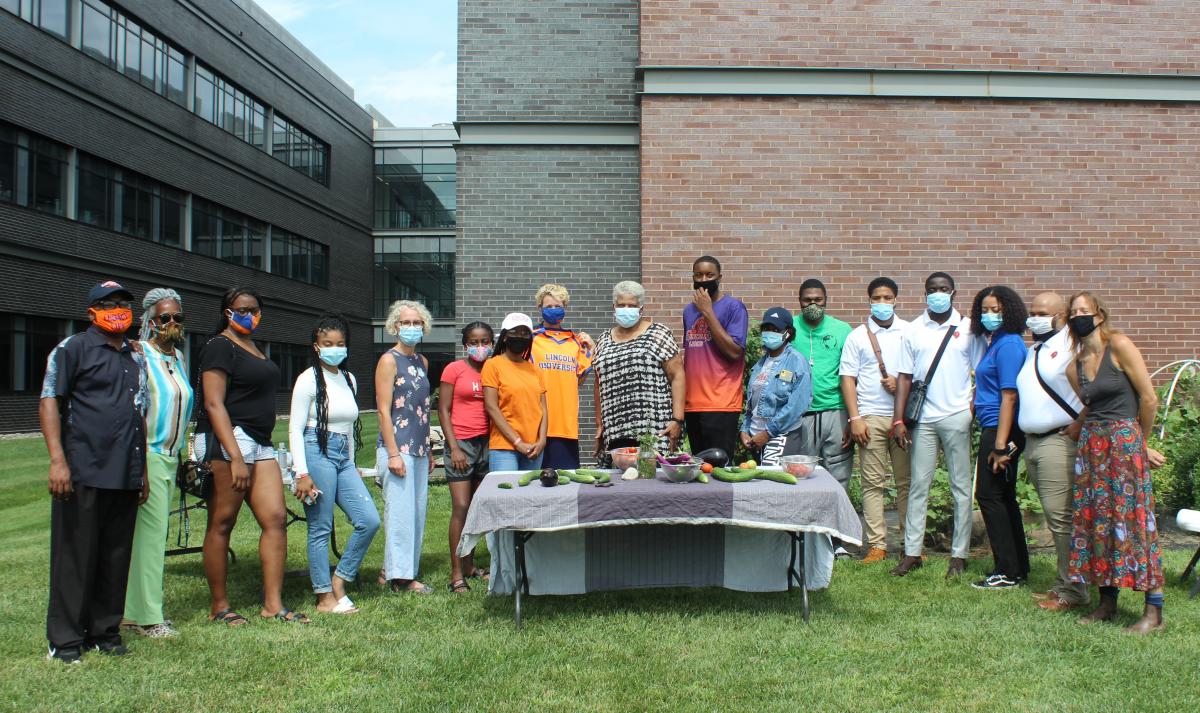 |
| Lincoln students, faculty, and staff with U.S. Rep. Chrissy Houlahan in front of the Ivory V. Nelson Science Center and the sustainable garden on September 3, 2020. |
Q: Has your research led to unexpected opportunities for global engagement, social responsibility, and leadership development for you or the students?
Absolutely! Through this project, students and faculty have been involved in social action to collect and connect, through social media, local Black farmers, and Black-owned restaurants and food outlets (#hbcufood). Students also report having become much more invested in the sustainable production of healthy foods with access for all people.
Q: Outside of the specific academic discipline of the research project, give an example of the knowledge/ skills needed for success that a student has acquired because of this research.
When asked, research students reported that they learned the importance of both attentiveness and flexibility to be able to respond to the unpredictability of nature to farming/gardening. I also feel that they are beginning to appreciate how interconnected seemingly divergent disciplines are and how knowledge or expertise in one field can add enormous value in collaboration with other fields.
